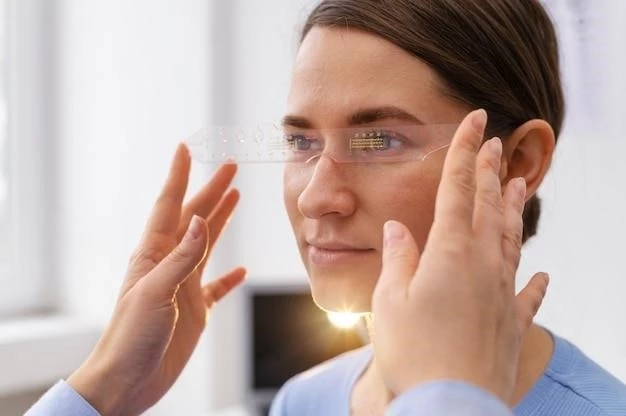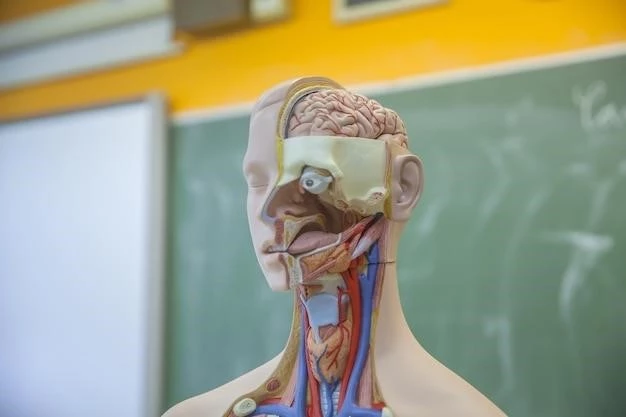Understanding Cyprus Facial Neuromusculoskeletal Syndrome
Causes of Cyprus Facial Neuromusculoskeletal Syndrome
While the exact causes of Cyprus Facial Neuromusculoskeletal Syndrome are still being researched‚ it is believed to result from a combination of genetic factors‚ environmental influences‚ and possibly certain triggering events. Factors such as abnormal development of facial muscles and nerves‚ nerve damage‚ and genetic predisposition may play a role. It is important to consult with healthcare professionals for a comprehensive evaluation to understand the specific factors contributing to the syndrome in individual cases.
Symptoms and Diagnosis of Cyprus Facial Neuromusculoskeletal Syndrome
Individuals with Cyprus Facial Neuromusculoskeletal Syndrome may experience symptoms such as facial muscle weakness‚ difficulty in smiling or closing the eyes‚ and problems with speech or swallowing. Diagnosis typically involves a thorough physical examination‚ imaging tests‚ and consultation with specialists like neurologists and oromaxillofacial surgeons. Early detection and accurate diagnosis are crucial in developing an appropriate treatment plan customized to each person’s needs.
Treatment Options for Cyprus Facial Neuromusculoskeletal Syndrome
Treatment for Cyprus Facial Neuromusculoskeletal Syndrome may include a multidisciplinary approach tailored to address individual symptoms and needs. Options may involve physical therapy to strengthen facial muscles‚ speech therapy to improve communication‚ and surgical interventions for severe cases. Additionally‚ medications to manage pain or other symptoms may be prescribed. It is essential to work closely with a team of healthcare professionals‚ including specialists in neurology‚ rehabilitation‚ and surgery‚ to develop a comprehensive treatment plan that aims to optimize quality of life and functionality.
Prognosis and Long-Term Effects of Cyprus Facial Neuromusculoskeletal Syndrome
The prognosis for Cyprus Facial Neuromusculoskeletal Syndrome varies depending on the severity of symptoms‚ individual response to treatment‚ and overall health. Long-term effects may include challenges with facial expressions‚ speech difficulties‚ and impacts on daily activities; It is essential for individuals and their caregivers to maintain open communication with healthcare providers‚ adhere to treatment plans‚ and participate in rehabilitation programs to manage the condition effectively. Seeking ongoing support and education can also contribute to enhancing long-term outcomes and overall quality of life.
Research and Developments in Understanding Cyprus Facial Neuromusculoskeletal Syndrome
Ongoing research into Cyprus Facial Neuromusculoskeletal Syndrome aims to enhance our understanding of the underlying mechanisms‚ improve diagnostic tools‚ and explore innovative treatment approaches. Scientists are investigating genetic factors‚ neural pathways‚ and potential environmental triggers to advance knowledge in this field. Stay updated on the latest developments by consulting reputable medical sources‚ participating in clinical trials if eligible‚ and discussing emerging treatment options with healthcare providers. Contributing to research efforts can help shape future advancements in managing and potentially preventing the syndrome.
Prevention Strategies for Cyprus Facial Neuromusculoskeletal Syndrome
While specific preventive measures for Cyprus Facial Neuromusculoskeletal Syndrome may not be fully established‚ focusing on overall health and wellness can potentially reduce the risk of certain factors that may contribute to the condition. Maintaining a healthy lifestyle that includes regular physical activity‚ a balanced diet‚ and managing stress levels can support optimal nerve and muscle function. Additionally‚ staying informed about genetic risks and seeking genetic counseling if applicable may help individuals make informed decisions about their health. Consult healthcare professionals for personalized guidance on preventive strategies tailored to individual circumstances.
Support and Resources for Individuals with Cyprus Facial Neuromusculoskeletal Syndrome
Individuals with Cyprus Facial Neuromusculoskeletal Syndrome may benefit from a range of support services and resources designed to enhance their well-being and quality of life; Consider connecting with patient advocacy groups‚ support hotlines‚ and online communities to access information‚ share experiences‚ and find emotional support. Healthcare providers‚ including neurologists‚ physical therapists‚ and speech therapists‚ can offer specialized care and guidance. Additionally‚ exploring assistive technologies‚ rehabilitation programs‚ and counseling services can aid in managing the challenges associated with the syndrome. Remember‚ you are not alone‚ and seeking support is a proactive step towards better outcomes.

Impact of Cyprus Facial Neuromusculoskeletal Syndrome on Quality of Life
Cyprus Facial Neuromusculoskeletal Syndrome can have a profound impact on an individual’s quality of life‚ affecting their ability to communicate‚ express emotions‚ and engage in daily activities. It is essential to address not only the physical symptoms but also the emotional and social aspects of living with the syndrome. Seeking support from healthcare professionals‚ participating in therapy sessions‚ and connecting with support groups can provide emotional support and practical strategies for coping with the challenges. Education and advocacy can empower individuals to navigate the impact of the syndrome and enhance their overall well-being and quality of life.
